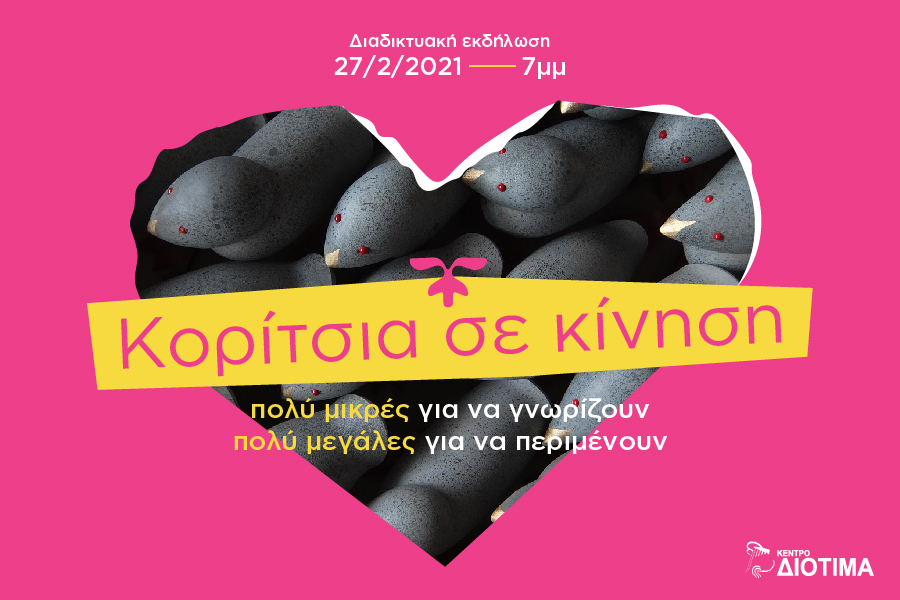The Diotima Centre is organizing a live online event entitled “Girls on the Move: Too Young to Know Too Big to Wait” on Saturday 27/2 at 7 pm.
The event is taking place on the occasion of the “Girls on the move in Greece” research carried out by the Diotima Centre as part of a trans-Balkan project, to record the migration experiences of unaccompanied and accompanied girls in the Balkans, Latin America, and Africa.
Right to visibility
The discussion about children on the move does not take place in a vacuum. It is shaped and produced through the existing social and political context which in turn produces dominant discourses about childhood, gender, and migration.
A few studies focus on girls, which reflects a condition of invisibility within hetero-patriarchy, to which girls and women are subjected to. The right to visibility is a deeply political issue since some categories of people are considered historically socially “worthy” of attention.
This is also the case of girls on the move, “the outsiders” of the refugee population, as Esther said, who so far have not received the due attention of state and non-state bodies.
The travel experience
The research comes to fill an important gap in the country. It concerns the critical analysis of the experience of unaccompanied and accompanied – by their relatives – girls, regarding the experience of their trip to Greece and the role of gender and sexuality in it. It focuses on the reasons for migration, the conditions of movement and arrival, as well as their dreams and expectations for the future.
On this basis, policy proposals are formulated to protect their rights and respond to their many dynamic needs.
By focusing on the girls’ narratives we aim to ‘make space’ by letting their stories ‘take place’, and ‘happen’.
Talks
- “‘I Didn’t Even Know What the Word Refugee Means’: The Emergence of a Gendered, Displaced, Vulnerable, Political Subject”
Maria Liapi, sociologist/researcher, Diotima Centre
- “‘We Are Strange Creatures’: Reflections on Vulnerability in Girls’ Migration Narratives”
Diana Manesi, PhD in social anthropology/researcher, Diotima Centre
- “Crossing Multiple Meaningful Borders: Movement as Crisis and Critique”
Irini Avramopoulou, assistant professor of Social Anthropology, Panteion University of Social and Political Sciences
- “The psychosocial care system for unaccompanied girls in Greece: challenges and perspectives”
Giorgos Nicolaidis, psychiatrist, Director of the Department of Mental Health and Social Welfare, Child Health Institute
Coordination
Anna Michalakeli, social anthropologist, Diotima Center
LIVE Broadcast
- NGOdiotima | facebook
- facebook event





